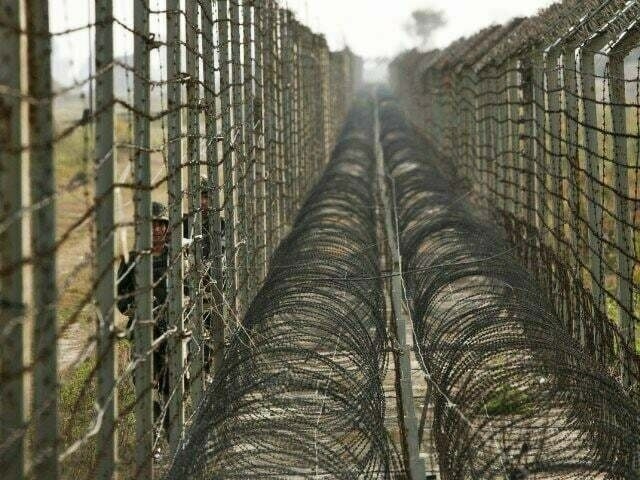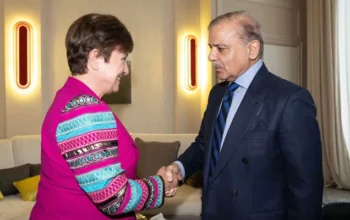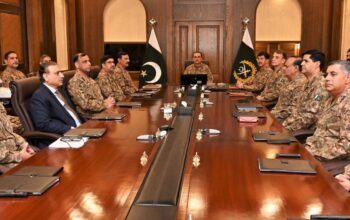By Staff Reporter
ISLAMABAD: US Vice President JD Vance called on India to avoid escalating tensions with Pakistan on Thursday after a deadly attack in occupied Kashmir, as the nuclear-armed rivals exchanged accusations and bolstered military stances.
The April 22 assault in Pahalgam, a tourist town in the disputed region, killed 26 people, mostly tourists, marking one of the deadliest incidents in the region since 2000. India blamed cross-border militants, a charge Pakistan rejected, urging an independent probe.
“Our hope here is that India responds to this terrorist attack in a way that doesn’t lead to a broader regional conflict,” Vance said in an interview on Fox News.
“And we hope, frankly, that Pakistan, to the extent that they’re responsible, cooperates with India to make sure that the terrorists sometimes operating in their territory are hunted down and dealt with.”
The attack has reignited longstanding tensions between India and Pakistan, who both claim the Kashmir region in full but control parts of it. U.S. President Donald Trump condemned the incident, calling it “terror” and “unconscionable,” and expressed solidarity with India without directly pointing to Pakistan.
India is a vital U.S. partner in efforts to counter China’s growing influence in Asia, while Pakistan remains an ally, though its strategic significance has lessened since the US withdrawal from Afghanistan in 2021.
Earlier this week, the US has called on India and Pakistan to collaborate to reduce tensions and find a “responsible solution.”
The US State Department confirmed it is engaging both nations at various levels, with Secretary of State Marco Rubio holding separate calls on Wednesday with Indian Foreign Minister Subrahmanyam Jaishankar and Pakistani Prime Minister Shehbaz Sharif.
Following the attack, India suspended the Indus Waters Treaty, a 1960 pact regulating shared river resources. Pakistan responded by closing its airspace to Indian carriers, and the two sides have traded fire across their disputed border.
On Thursday, Prime Minister Sharif discussed the crisis with Qatar’s ruler, Sheikh Tamim bin Hamad Al-Thani, expressing alarm over India’s “weaponization” of the Indus waters, which he called a lifeline for Pakistan’s 240 million people and “unacceptable.”
Later, in a meeting with Chinese Ambassador Jiang Zaidong, Sharif said India’s actions could hinder Pakistan’s counter-terrorism efforts against militants operating from Afghanistan.
He stressed that resolving the Kashmir dispute is essential for lasting peace in South Asia and thanked China for backing Pakistan’s call for a transparent probe into the attack.
“India’s decision to weaponize water is extremely regrettable,” Sharif said, noting that the treaty does not permit unilateral suspension.
Amid diplomatic efforts, Pakistan’s army chief, General Asim Munir, issued a sharp warning during a visit to the Tilla Field Firing Ranges in Jhelum, where he observed a high-intensity military exercise dubbed “Exercise Hammer Strike.”
“Let there be no ambiguity: any military misadventure by India will be met with a swift, resolute, and notch-up response,” Munir said, according to the Inter-Services Public Relations (ISPR). He emphasized Pakistan’s commitment to peace but underscored its readiness to defend its sovereignty.
The ISPR said Munir praised the troops’ “high morale, combat proficiency, and war-fighting spirit,” calling them the “embodiment of Pakistan Army’s operational excellence.”
Copyright © 2021 Independent Pakistan | All rights reserved




